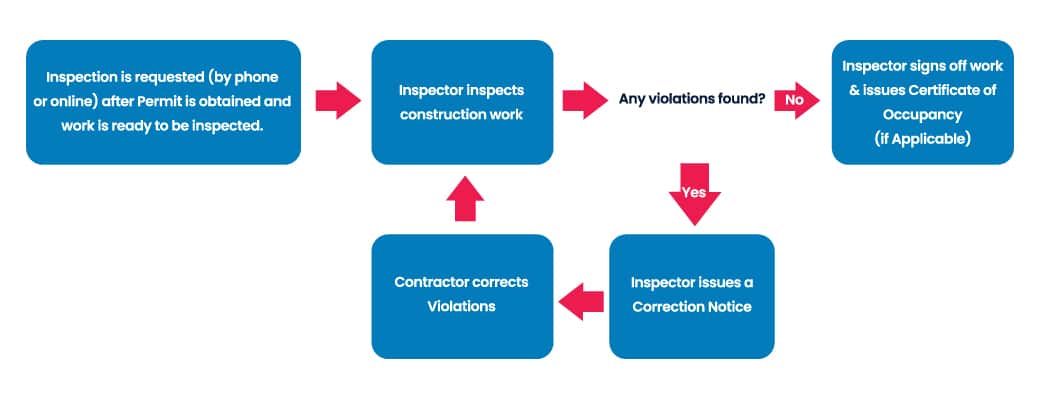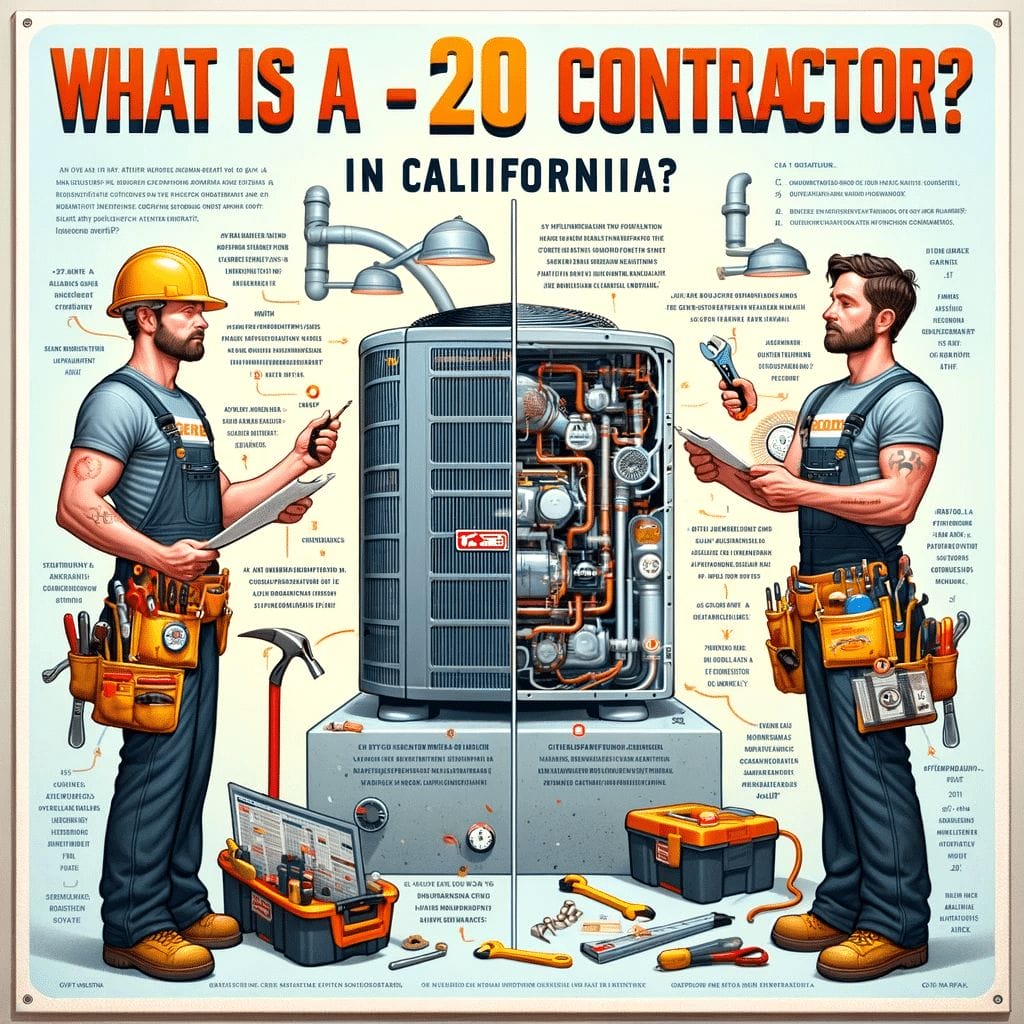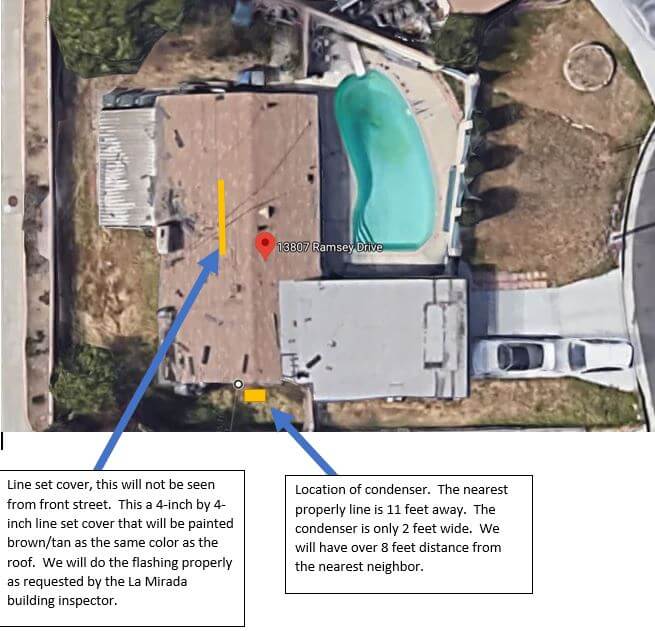HVAC City Permits & Final Inspection Process
HVAC Permit Process In California
Understanding the HVAC permit process in California is crucial for homeowners, contractors, and professionals in the heating, ventilation, and air conditioning (HVAC) industry. In the Golden State, strict regulations are in place to ensure that HVAC installations and modifications meet the highest standards of safety, efficiency, and environmental compliance. California’s unique climate challenges and commitment to energy efficiency have led to specific requirements, including the need for a licensed C-20 contractor to pull permits for significant HVAC work. This process not only safeguards property owners but also aligns with the state’s progressive energy policies, such as Title 24, which sets forth rigorous efficiency standards for new and upgraded HVAC systems. Navigating these regulations is essential for successful project completion and legal compliance, making an understanding of the permit process a key component for anyone undertaking HVAC projects in California.
- Planning Department With A Sight Plan
- Building Application Process
- Third Party HERS Rating Testing
- Final Inspection
- What If You Fail
What You Should Know Before Getting Started:
- California requires a licensed C-20 Contractor to pull the permit. A homeowner can do it as an owner/builder, but a handyman can’t go down to city hall and pull it.
- Is it required? Yes! If you are replacing or installing a furnace, coil, condenser, or ductwork, it needs a permit.
- Repairs do not require a permit.
- Title 24 is the new standard for efficiency in California, and your new system will need to meet its standards, or you will not pass inspection.
1) Planning Department With A Sight Plan
- You will need a sight plan: Its a picture or drawings of an aerial view of the home or building with a simple description of what you are doing and where.
- You might need details of the equipment you are installing so they can approve the ascetics
- The sight plan is usually for outside only. The city or county want to make sure it won’t be a blight or an eye sore to their standards.
- Some cities and counites in California require additional information but for homes and small Commerical projects this usually works.
- Don’t be scared to ask questions, the city planners will help you.

2) Building Department Application Process
What your HVAC contractor is going to pull the permit he will need these things to even starts the application:
- His Califonia Licsence Board Number in good standings
- Workers Compensation Insurace is hes has any employees even family members
- Some times Liability Insurance or a Bond
Their Is More Than Just An HVAC Permit
Your air conditioning contractor or you will need to pull a permit for each trade that it involves for example:
- Plumbing: if you are running new gas line to the location of the furnace you will need a permit for that.
- Electrical: If you are replacing or installing new power for the condenser or furnace you will need that.
- Mechanical: That’s what they call an air conditioning, heating or duct work permit.
What’s On The Application?
Its Usually basic thing you will be preforming and the equipment you will be installing like:
- How many duct runs?
- How many electrical outlets will be installed?
- Electrical disconnect size?
- New natural gas system installed?
- How many BTU’s will the furnace or condenser will be.
They are simple questions that an experienced heating and cooling contractor will know.
I Need What Form For My Title 24 Compliance?
The building depart will not issue a permit without a Title 24 CONTRACT REQUEST FORM (CRF)
What is it?
- Its a document you must submit online using a organization like:
Whats Left To Get The Permit After All That?
Pay for it

3) Third Party HERS Rating Testing:
Before the city building inspector comes to check the work you need to call a Title 24 HERS Rater. He will:
- Document the efficacy of the ductwork, refrigerant flow and air flow of the system.
He will compare it to the starards it should be at and pass or fail the test. - He will submit the report to the state of California energy department for documentation.
- He will send your results to you for the city inspector.
The HERS rater is required by law to be third party to the test is not bias.
4) HVAC Final Inspection
Now that the work has been completed and now what?
- Call for inspection: It can take up to two weeks for the inspector to come out so plan accordingly
- Give Access: If the furnace or work was done in the attic, you or the contracor will need to provide a ladder so he can go see. If you do not provide access to where he needs to see he will fail your inspection. Also put your dogs aways and have gates unlocked so he can see what he needs to see.
- CO2 Detectors: The inspector will ask to see all the bed rooms for smoke and CO2 detectors and on in the hallway. You will fail if you do not have this done.
- Have all your paperwork: Your going to need the permit card and the report from the HERS rater so he can sign you off if you pass.
- Keep Your Records: If you pass or fail keep your records so you can show the contractor the corrections needed. If you pass you still need a copy that you signed, you will be surprised how your inspector can lose your paperwork before he gets back to his office.

5) What Happens If You Fail Your Inspection:
Its not the end of the world if you fail your inspection it happens every day to all contractors. Code change, the inspector is having a bad day, or your contractor doesn’t know what he is doing…
What Do You Do Now That you Failed?
- Understand What He Wrote You Up On: If you do not understand what he wants done or why you failed. Ask the inspector what he means and what he wants done. If you were not there during the inspection you can call him during his office hours
- Make The Corrections: Do what they say, you can try to fight it but you will need proff by the code book that the installation is correct.
- Gambile To Get Another Inspector: If you get another inspector and he didnt talk to his colleagues, he might over look the small stuff you got called on.
- Call his manager and state your case: This can go really bad or it might work out for you. Inspectors are people, and they remember you and how you tired to get them in trouble. So the next time they come out they will write you up for other things… You dont fight city hall.
I hope this helps give you a guideline on what to do. Its not exact but it will get you through the air conditioning inspection process.

